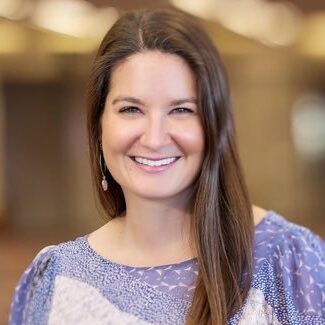 What does it take to land a coveted spot on Shark Tank, secure funding, and watch sales of your invention skyrocket to millions of dollars after your episode airs? In one inventor’s case, it took a breakthrough idea, one year of creating and experimenting with prototypes, a Kickstarter campaign, and, most importantly, intellectual property expertise.
What does it take to land a coveted spot on Shark Tank, secure funding, and watch sales of your invention skyrocket to millions of dollars after your episode airs? In one inventor’s case, it took a breakthrough idea, one year of creating and experimenting with prototypes, a Kickstarter campaign, and, most importantly, intellectual property expertise.
Sleep Styler creator Tara Brown, an ophthalmologist by trade, turned to Knobbe Martens for help securing IP protection as soon as she had her final prototype – a no-heat hair roller – in hand. Attorneys helped her file for patent protection and obtain trademark registration. Brown then raised over $40,000 in an August 2016 Kickstarter campaign, and in March 2017, her Shark Tank episode aired, where she agreed to take $75,000 in funding in exchange for 25 percent equity. The very next week, sales soared from $70,000 in revenue to $3 million, and within three months hit the $50 million mark.
IPWatchdog sat down with Loni Morrow, Associate at Knobbe Martens, and Tara Brown, Inventor of the Sleep Styler®, to investigate how the Knobbe Martens attorneys were able to nail down the IP Brown required to take her product to the little leagues and then the big leagues, and what they’ve done since her business has blown up.
Prior to developing her first prototype, Brown sought IP expertise. In fact, Brown originally came in with a verbal idea for the Sleep Styler® hair styling device, so Morrow and her team conducted a patent search for Brown to see what else was out there that was similar to her idea. After they discussed the existing types of hair styling devices based on the search, the team provided Brown with a confidentiality agreement to use if she needed anybody to help her with developing her invention.
“She had a close family member hand sew the first prototype of the product and drafted several drawings for us,” said Morrow. “This initial work allowed us to draft a really strong provisional patent application. I still have that first prototype in my office.”
These days, Knobbe works with many startup businesses and entrepreneurs – and the approach to each client varies depending on the client’s goals, business model, and phase in development. A client who wants to license his or her invention to a large international corporation would have a different IP strategy than a client who wants to manufacture his or her invention without a licensee, solely in America. Knobbe aims to provide its clients with innovative solutions to each of their unique situations.
“If a client has never invented anything before, I initially ask what he or she sees as the goal for this product—manufacturing, licensing, international, domestic, etc.,” explained Morrow.
The entire process tends to be very educational for most new inventors. For instance, when Brown came in, she told Morrow that her goal would be to see the Sleep Styler® product on “As Seen on TV” or something similar and she hoped to license the product because she did not want to give up her ophthalmology practice. With this in mind, Morrow recommended a provisional patent filing because it is a cheaper option that would delay some of the expensive examination fees and would give her time to find licensees
“Tara did not know much about IP and put a lot of trust in us to put appropriate protections in place as her product developed,” she said. “I think that is true for most startup inventors/entrepreneurs. They want to, and should, focus on developing their product and business. They should be able to rely on their IP attorney to take care of the details of the IP acquisition process.”
Obtaining patent and trademark protection is often a negotiating process with the Patent and Trademark Office. Because of the Sleep Styler® product’s success, there are now products coming onto the market that are copies and counterfeits of Brown’s product. Morrow is currently working with Chinese attorneys to stop Chinese exports that infringe her IP rights. Brown kept the Knobbes team updated throughout her product’s development.
“She let us know when she contacted suppliers, when she was going to trade shows, when she was going to be on the San Diego news, when Shark Tank first contacted her, and when she was going to air on Shark Tank. It was exciting for us to see her accomplish each milestone and we wanted to be involved to be sure she did not sign any agreements that would be detrimental to the success of her business,” Morrow explained. “We were comfortable with Tara talking about her invention at these various public appearances because she did a great job coming to us early in the invention process so we had filed for patent and trademark protection well before any of her public appearances, including her appearance on Shark Tank.”
Today, entrepreneurs should assume that their product is going to be successful and seek IP protection early in the process, advised Morrow. If they wait until their product becomes a hit, there are laws that can prevent them from securing patent protection, both in the U.S. and internationally. If the product becomes popular and you have not received IP protection, you should seek the advice of an IP attorney as soon as possible because some methods of IP protection are time sensitive.
She said, “As is the case with Tara’s product, if your product becomes a hit then you must start worrying about knock-offs, so assuming an entrepreneur has the appropriate protections in place, they should start monitoring the market for infringing products. If there are infringing products, there are several different methods of enforcement, which include working with customs and filing lawsuits against infringers.”
Startup inventors and entrepreneurs that look to crowdfunding or competition-type venues like Shark Tank to get their product off the ground are often strapped for cash, so they do not seek IP protection early enough in the process, which can be detrimental to the success of their business. Regardless of your limited cash reserves, per Morrow, inventors and entrepreneurs should seek the advice of an IP attorney prior to disclosing anything to anybody.
Further, there are organizations like California Lawyers for the Arts (CLA) that will find attorneys willing to do pro bono work for start-ups and entrepreneurs that meet requirements. If an entrepreneur does not meet the requirements for CLA pro-bono work, there are still cheap ways of getting some IP protection. The Patent office fees for filing a provisional patent application are less than $300. An entrepreneur can file a provisional application with drawings, pictures, and Kickstarter screenshots of the product before it goes live, if that is all they have.
Morrow warned, “Inventors should be wary about providing too much information on these venues—don’t provide more information on these venues than you need to get people excited about the product, especially if your IP filings are thin.”

![[IPWatchdog Logo]](https://ipwatchdog.com/wp-content/themes/IPWatchdog%20-%202023/assets/images/temp/logo-small@2x.png)

![[Advertisement]](https://ipwatchdog.com/wp-content/uploads/2024/05/Quartz-IP-May-9-2024-sidebar-700x500-1.jpg)
![[Advertisement]](https://ipwatchdog.com/wp-content/uploads/2024/04/Patent-Litigation-Masters-2024-sidebar-last-chance-700x500-1.jpg)

![[Advertisement]](https://ipwatchdog.com/wp-content/uploads/2021/12/WEBINAR-336-x-280-px.png)
![[Advertisement]](https://ipwatchdog.com/wp-content/uploads/2021/12/2021-Patent-Practice-on-Demand-recorded-Feb-2021-336-x-280.jpg)
![[Advertisement]](https://ipwatchdog.com/wp-content/uploads/2021/12/Ad-4-The-Invent-Patent-System™.png)






Join the Discussion
7 comments so far.
angry dude
November 4, 2017 04:17 pmGene
I’ve already adapted to new realities
my next tech venture is based on strong trade secret protection and no stinking patents
you like it – you invest cash or buy it for cash upfront
no manufacturing either – just pure play
but thanks anyway
Gene Quinn
November 4, 2017 02:19 pmandry dude-
You are the one who doesn’t understand. Over the years you’ve been here I and others have given you advise multiple times on what you could do, and explained what you could have done. You don’t take advice because you think you know everything. But it turns out that you don’t know anything. You are bitter because you haven’t succeeded and rather than attempting to alter your strategies given changing circumstances you complain about the past and want to pretend there is no way forward. But there are inventors that do find a way forward, as this article demonstrates. So you can complain all you want, but you really need to look in the mirror. The person looking back at you is the reason why you are so bitter and can’t figure out how to move forward despite difficult times.
angry dude
November 3, 2017 02:48 pmGene,
You know all too well why I and thousands of other inventors who trusted US patent system (pre-Ebay) have not succeeded, not money-wise at least, if that’s what you mean by “success” which you shouldn’t do btw
“Never measure a man’s success by the size of his wallet”
Patents are about new and useful inventions in the first place, not money
– money is just an incentive
If my invention is used in many products even without paying me a dime I am still successful
Too bad you don’t understand this
Gene Quinn
November 3, 2017 01:40 pmangry dude-
Yes, those billionaire Sharks are a bunch of ignorant morons who get taken to the cleaners and know nothing about business. You, on the other hand, who haven’t succeed and are bitter about everything have all the answers.
angry dude
November 3, 2017 01:09 pmGene,
One of those “successful business men” Mark Cuban was ridiculed and dismissed right here, on IPWatchdog, for his moronic and downright idiotic views on patents and for specific invalid (non-enabled) patent he had financial interest in (some self-balancing board which does not self-balance according to his patent)
And one can argue that he is the most intelligent and knowledgeable of all of them, technology wise at least
I stand by my opinion: as far as hi-tech goes shark tank investors are bunch of ignorant morons to be taken to the cleaners
The’d better stick to jelly animals and lighting toilet amusements
Gene Quinn
November 3, 2017 11:53 amangry dude-
You are entitled to your opinion, but the fact that the software industry and biotech industry is in disarray because of idiotic patent policy and laws does not mean the rest of the patent system is suffering the same lunacy. Patents play a vital role for many inventors and investors.
Also, calling the billionaire investors on Shark Tank a bunch of morons speaks more about you than them. Whatever your opinion of the “Sharks” these people are not morons. They are highly successful business men and women. You really could learn a thing or two by watching the show and lowering your filters.
angry dude
November 3, 2017 11:36 amYeah, good luck enforcing those patents against copycats in US courts…
it’s amazing that those morons/douche bags on shark tank still ask about patents
must have too much money on their hands they never deserved in the first place